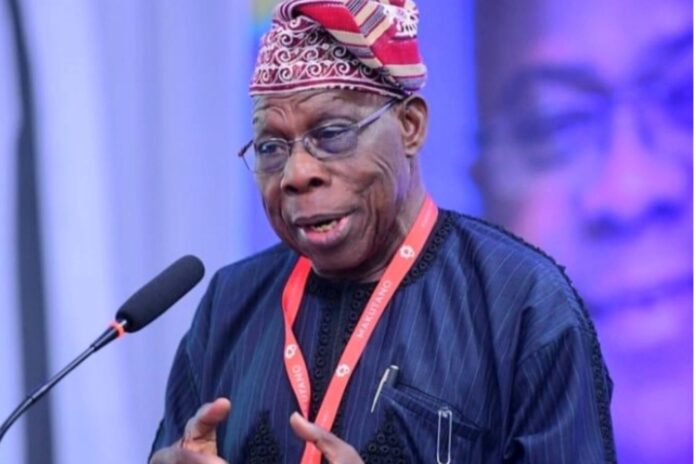By Milcah Tanimu
Former President Olusegun Obasanjo has raised concerns over efforts by those benefiting from fuel importation to frustrate the Dangote Petroleum Refinery.
The multi-billion-dollar Dangote Refinery and Petrochemicals Ltd was envisioned as Nigeria’s beacon of energy independence. However, a recent dispute between the Nigerian Midstream and Downstream Petroleum Authority (NMDPRA), the Nigerian National Petroleum Company (NNPC) Limited, and the Dangote refinery has raised concerns.
Earlier, the President of Dangote Group, Aliko Dangote, expressed frustration over what he described as a gang-up to sabotage the refinery project amid the inability to secure crude from local sources. However, President Bola Tinubu has instructed the NNPC to make crude oil available for sale to Dangote Refinery in Naira.
In an interview with the Financial Times, Obasanjo emphasized the significance of the refinery project. “Aliko’s investment in a refinery, if it goes well, should encourage both Nigerians and non-Nigerians to invest in Nigeria. If those who are selling or supplying refined products to Nigeria feel that they will lose the lucrative opportunity, they will also make every effort to get him frustrated,” he said.
Obasanjo reflected on Nigeria’s past economic decisions, stating, “We made a very, very deadly mistake. We put all our eggs in one basket of oil. We even ignored gas. We were flaring gas, which is a very important commodity. We ignored agriculture, which should have been the centrepiece of our economic development.”
He recalled his tenure as president, mentioning efforts to involve Shell in running Nigeria’s refineries. “When I was president, I invited Shell to come and take equity and run our refineries for us. They refused and said our refineries were not well maintained. We brought amateurs instead of professionals. Then there was too much corruption in the way our refineries were maintained. They didn’t want to get involved in such a mess,” Obasanjo explained.
Criticizing President Bola Tinubu’s approach to removing fuel subsidies, Obasanjo argued that the administration should have considered the potential hardships and ways to alleviate them. “There’s a lot of work that needs to be done. Not just wake up one morning and say you removed the subsidy. Because of inflation, the subsidy that we have removed is not gone. It has come back,” he said.
The former president’s comments highlight the challenges and complexities surrounding Nigeria’s energy sector and economic policies.

